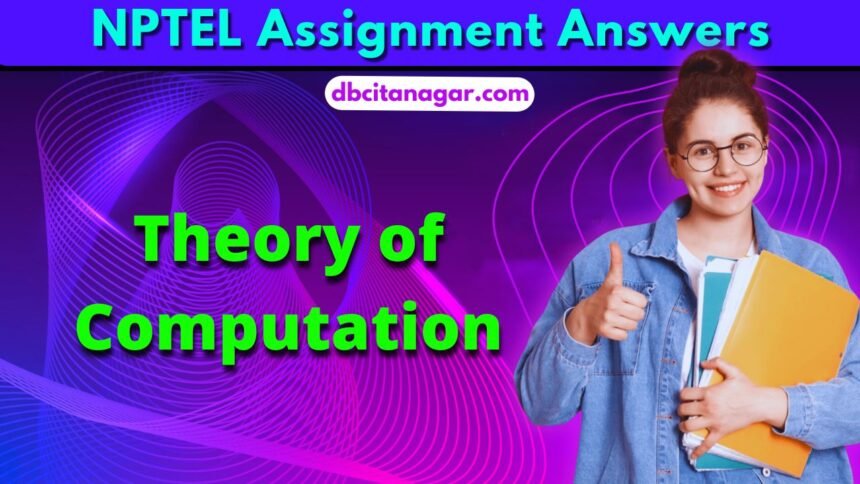NPTEL Theory of Computation Week 7 Assignment Answers 2024
1. The union of two decidable languages is
- context-free but not necessarily regular
- regular
- decidable but not necessarily context-free
- recognizable but not necessarily decidable
Answer :- For Answers Click Here
2. Which of the following languages is not Turing-recognizable?
- {⟨R⟩∣R is an RE and L(R)=∅}
- {⟨M⟩∣M is a NFA and L(M)=∅}
- {⟨G⟩∣G is a CFG and L(G)=∅}
- {⟨M⟩∣M is a TM and L(M)=∅}
Answer :- For Answers Click Here
3. Consider the language
L={⟨G1,G2⟩∣G1,G2 are CFGs and L(G1)=L(G2)}
Then L is
- regular.
- decidable but not regular.
- Turing recognizable but not decidable.
- not Turing recognizable.
Answer :-
4. The intersection of two Turing-recognizable languages is
- context-free but not necessarily regular
- regular
- decidable but not necessarily context-free
- recognizable but not necessarily decidable
Answer :-
5. What can we say about the following two languages?
ATM={⟨M,w⟩∣M is a TM that accepts the string w}
ETM={⟨M⟩∣M is a TM and L(M)=∅}
- ATM is Turing recognizable, ETM is Turing recognizable
- ATM is co-Turing recognizable, ETM is Turing recognizable
- ATM is Turing recognizable, ETM is co-Turing recognizable
- ATM is co-Turing recognizable, ETM is co-Turing recognizable
Answer :-
6. Consider the following languages
L1={⟨L⟩∣L is a regular language such that |L|=10}
L2={⟨L⟩∣L is a regular language such that |L| is infinity}
Which of the following statement is true?
- L1 and L2 both are undecidable
- L1 and L2 both are decidable
- L1 is decidable but L2 is undecidable
- L1 is undecidable but L2 is decidable
Answer :- For Answers Click Here
7. Which of the following statements is false?
- Complement of a regular language is also regular
- Complement of a DCFL is also a DCFL
- Complement of a decidable language is also decidable
- Complement of a Turing-recognizable language is also Turing recognizable
Answer :-
8. Consider the language
L={⟨D1,D2⟩∣D1,D2 are DFAs and L(D1)=L(D2)}
Then L is
- regular.
- decidable but not regular.
- Turing recognizable but not decidable.
- not Turing recognizable.
Answer :- For Answers Click Here






